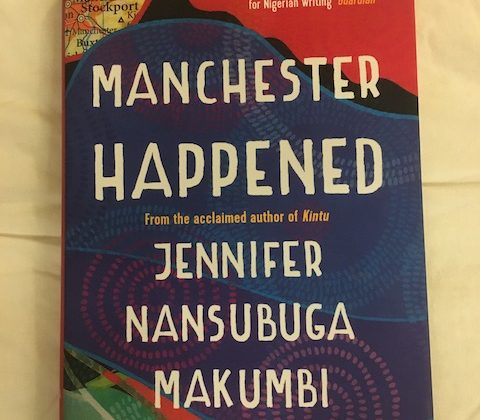Manchester Happened is a bold and candid collection of short stories written by acclaimed author Jennifer Nansubuga Makumbi. The book follows several Ugandan immigrants who have settled in Manchester and some who have returned home. Makumbi uses the two settings to discuss the opportunities and challenges faced by immigrant families. At her book launch in London, Makumbi said, she wanted to capture “the process of coming and going home.” She also wanted to dispel the idealistic view that Britain is a hospitable and prosperous country. In this collection, Makumbi shows that Manchester, in general, and immigrant life more specifically produces experiences marked by hardship. While some of the difficulties come from being unaccustomed to Mancunion life, other hardships are instigated by unrealistic expectations. For example, in the title story, Manchester Happened, Makumbi paints a portrait of a naïve young girl, Katassi, who is struggling to adjust to life in the city. For Katassi, Manchester is a city overflowing with money; it is a place where a person can afford designer clothes, and where white people are charitable. Katassi, who is sent by her parents to access better education, fully absorbs the media images of a utopic Britain. However, in Manchester, Katassi finds a cold environment, one that is filled with racism, poverty, and isolation. When she fails to access a luxurious and comfortable lifestyle, her view of her family and herself becomes jaundiced with disappointment and self-hate. Katassi adopts an attitude of defiance and scapegoating that alienates her relatives.
While this book has been praised for its focus on immigration, for me, what makes it a standout is its close reading of family dysfunction. We see addiction, loneliness, and duplicitousness emerging as key themes. In many ways, Makumbi is showing us the damage done to the family when children are separated from their parents or when parents are removed from supportive communities. Instead of a “bright future,” family life in Manchester is marked by distress and lonesome chaos. The families in these stories keep to themselves afraid to be vulnerable, afraid to become fodder for gossipmongers. To many of the protagonists, Manchester is an “upside-down” place where the children assume the roles of caretakers and parents are overcome by indecision. This type of neglect is illustrated in the story Christmas is Coming, where we see a young boy riddled with depression and anxiety at his mother’s alcohol-fueled belligerence. Similarly, in the story, Our Allies The Colonies, we witness a prodigal son roaming the seas looking to escape his name, only to lose his parental rights in a racist bureaucratic system.
Yet, Makumbi strikes an even note, showing that Manchester can also be a city of refuge. In one of the most touching stories, Let’s Tell This Story Properly—a loving wife struggles to heal from her husband’s betrayal and the patriarchal system that endorses it. In this story, Manchester becomes a city for a clean start, a location that equalizes the playing field. For those who are escaping gender and economic inequality– Manchester offers reprieve. It is a place where a woman can become a breadwinner and a poor person can rise to managerial positions.
If you’re looking for stories about immigration and the family then I highly recommend Manchester Happened. Many will find Makumbi’s writing style to be clear and concise. She paints an image of Ugandan life abroad and at home using just the right colors. In many ways, this book complements the existing body of work that has focused on family life. Books that come to mind include Fragments by Ayi Kwei Armah; Ghana Must Go by Taiyo Selassie; No Place to Call Home by JJ Bola; Voice of America by E.C. Osondu and Elsewhere Home by Leila Aboulela. Like Makumbi, these authors challenge us to see the subtle and overt ways immigration transforms the family. Whether its neglect, financial duress, or isolation, these stories tell us that the absence of a community to cushion the journey leaves many characters flailing in the wind.


